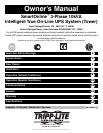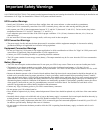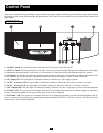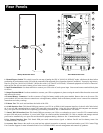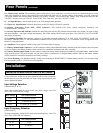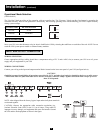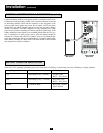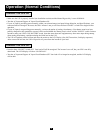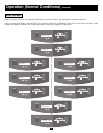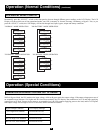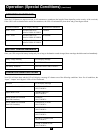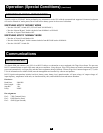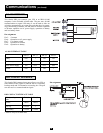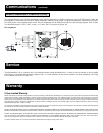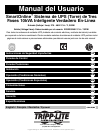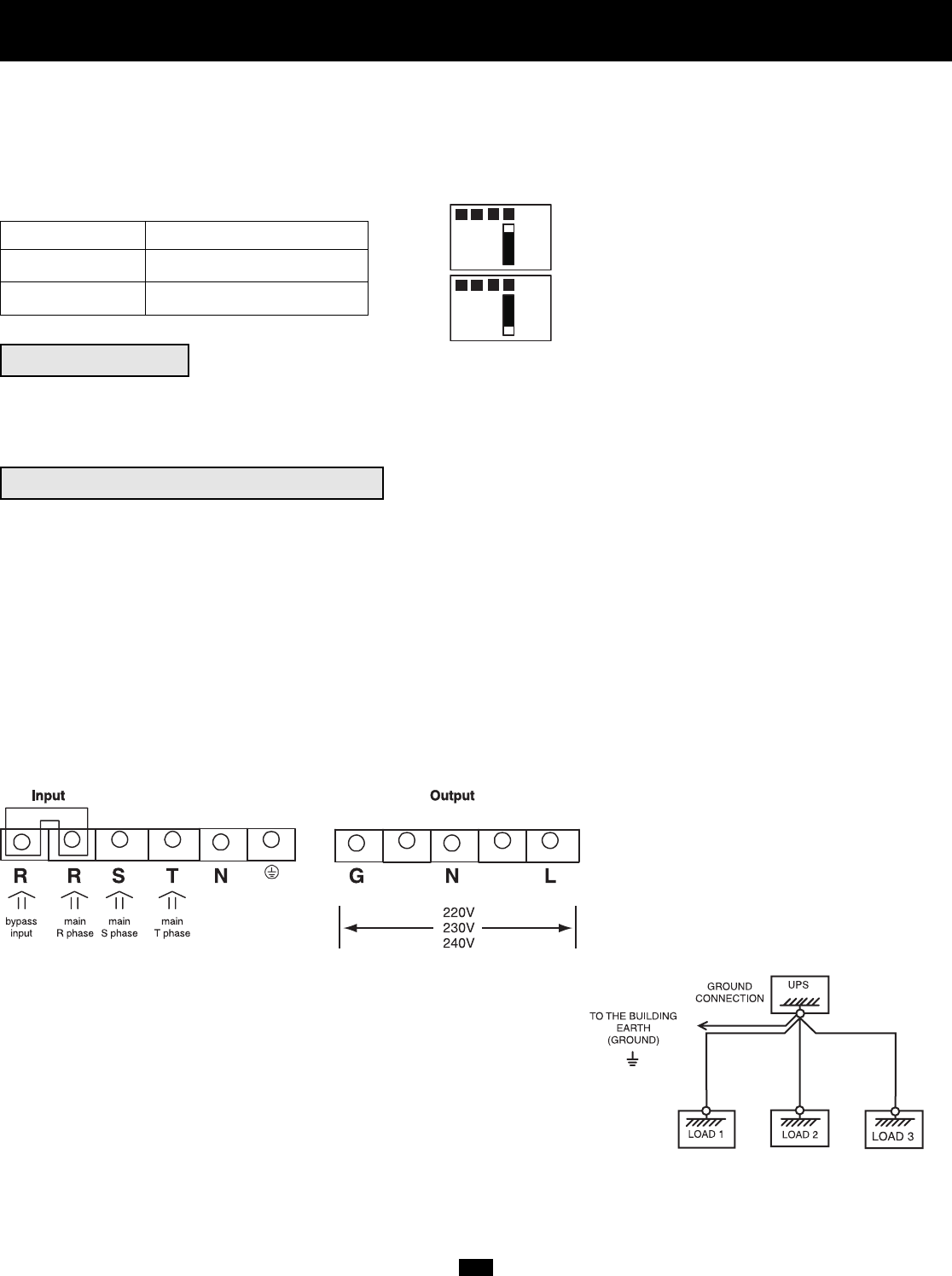
6
Installation
(continued)
Operational Mode Selection
(DIP Switch #4)
The "On-Line" Mode provides on-line operation with zero transfer time. The "Economy" Mode provides line-interactive operation for
increased efficiency when on-line protection is unnecessary, thus reducing operating costs without affecting your UPS's output reliability
during a power outage.
Operational Mode DIP Switch Position
On-Line #4 UP
Economy #4 DOWN
UPS LOCATION
Move your UPS over short distances using its wheels. Stabilize the UPS by releasing the stabilizers on each side of the unit. NOTE: Do not
stack the UPS System power module or external battery modules.
INPUT AND OUTPUT CONNECTION
WIRING SELECTION
Choose appropriate cabling (cabling should have a temperature rating of 70° C and 6 AWG size) to connect your UPS to an AC power
supply and your equipment to your UPS.
WIRING CONNECTIONS
Connect your wiring to the input and output terminal blocks located on the lower rear panel of your UPS (see figure below).
CAUTION!
Qualified personnel should follow all procedures prescribed by N.E.C. and other local codes for hardwiring devices to a utility source.
Ensure that cables are fitted with cable sleeves and are secured by connector clamps. Tighten connections with a torque of not less
than 35 inch-pounds.
NOTE: when shipped from the factory, bypass input and main R phase terminals
are shorted together.
CAUTION: Observe the appropriate cable connection regulations [e.g.
National Electrical Code (NEC) in the U.S.] at all times. Using cables of
improper size may damage your equipment and cause fire hazards. Ground
the UPS and the load equipment as shown in the figure.
1 2
On-Line
3 4
1 2
Economy
3 4



